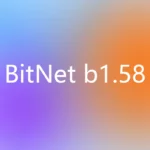For much of recent history, nerds and intellectuals were portrayed as social outcasts in popular culture. The typical nerd stereotype was that of an awkward, isolated brainiac with little social skills or real-world applicability. However, in just the last decade, “nerd culture” has exploded into the mainstream, with science, technology, and innovation taking center stage across entertainment, media, and society.

The Tech Industry Makes Intelligence Cool
Much of this cultural shift can be attributed to the massive success of tech companies like Google, Apple, Facebook, and Amazon. The founders and leaders of these companies, while fitting many nerd stereotypes, created products and services that fundamentally changed the world. Their intelligence and innovation improved lives across the globe. This cemented their status as business icons and elevated the public image of tech nerds from outcasts to visionaries.
Science Communication Gets a Makeover
Science used to seem intimidating and inaccessible to the average person. But thanks to modern science communication across mediums like television, online video, podcasts, and social media, complex fields like astrophysics and genetics have never been more engaging to the public. As people gain more scientific literacy, an interest in STEM fields grows.
Neil deGrasse Tyson and Bill Nye: Science Superstars
Popularizers of science like Neil deGrasse Tyson, Bill Nye, and Hank Green have become mainstream celebrities. Their entertaining presentations make science applicable and exciting instead of dense and obscure.
Geek Culture Takes Over Pop Culture
Pop culture is increasingly defined by “geeky” genres like science fiction, fantasy, gaming, and fandoms. Comic book characters dominate the box office through massively successful movie franchises like the Marvel Cinematic Universe. Video games are a multi-billion dollar industry. Shows like Stranger Things blend sci-fi, horror, and 80’s nostalgia into a nerd aesthetic with mass appeal.
San Diego Comic-Con: Epicenter of Pop Culture
Events like San Diego Comic-Con highlight this cultural shift. Once a niche gathering of comic book fans, it’s now a massive pop culture juggernaut attended by over 130,000 people annually.
Relatable Portrayals of Nerdy Characters
Perhaps most indicative of the changing attitudes towards nerdiness are the portrayals of openly nerdy characters in popular films and TV. Series like The Big Bang Theory showcase scientist characters as funny, complex, and endearing personalities living active social lives. The old stereotypes of one-dimensional, isolated basement dwellers just don’t resonate with today’s audiences.
Spider-Man: Beloved Nerd Turned Superhero
Even archetypal nerds like Peter Parker have evolved from social outcasts into charismatic heroes in franchises like the latest Spiderman films. As nerdiness becomes cooler, these characters become more celebrated by wider audiences.
Democratization of Technology and Innovation
Access to technology used to be confined to specialist fields. But with the proliferation of user-friendly digital tools, computers, and online resources, technology is now ubiquitous across business, art, science, and culture. Anyone can learn code or 3D design online. This democratization of tech means more participation and innovation from all parts of society.
YouTube Creators: One-Person Production Houses
Platforms like YouTube have allowed independent creators to find huge audiences by producing original films, shows, music, tutorials, and more right from their homes with affordable technology. Many top YouTubers exhibit interests across sci-fi, gaming, and other classically nerdy spaces.
The Lasting Impacts of Nerd Culture’s Rise
While the stereotype of basement-dwelling social outcasts still sadly persists in some circles, it’s clear that “nerd culture” has never been more celebrated within mainstream society. This cultural shift has created massively positive impacts:
- Inspired interest in STEM across younger generations
- An increased public appreciation for science and critical thinking
- Positive representation for those who don’t fit old nerd stereotypes
- New innovations and creativity across entertainment, business, and culture
Rather than facing ridicule or isolation, today’s nerds are driving advancements across industries, defining artistic trends, and creating amazing new technologies. Intelligence, curiosity, and passion are now qualities to be celebrated, as science and tech continue to shape society for the better.
















Add Comment